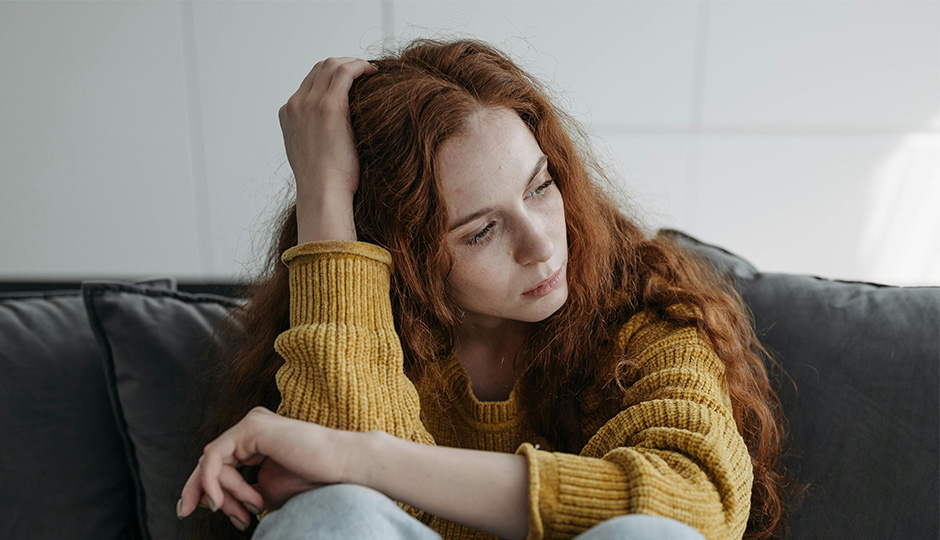Finding hair in your brush or drain can be troubling. However, losing a few strands of hair each day is perfectly natural. The average adult typically loses between 100 and 150 strands of hair a day, so while seeing your hair in the bottom of the tub may be disturbing, it's no cause for alarm or panic.
Identifying some of the habits that might be contributing to your hair loss can make a big difference. Here are a few common bad habits that may be causing you to lose more hair than usual.
Tight Hairstyles
Hairstyles where your hair is tightly pulled back, such as ponytails, buns, braids, and others, may affect your hairline and cause thinning around the edges. If you constantly wear tight hairstyles, you may pull your hair out by the roots and damage your hair follicles.
Excessive Heat Styling
Hot styling tools are a quick and easy way to achieve your desired look. However, regular use of hot tools like flat irons, curling wands, and blow dryers can weaken hair, making it more prone to breakage and fallout.
Getting that perfect curl in seconds is great, but exposing your hair to high heat can cause serious and irreversible damage. The key to safely using hot styling tools is to lower the heat, limit your use, and apply a heat protectant spray first.
Mental Health Concerns
Untreated mental health conditions can take a toll on your body and your hair. Mental health concerns, such as chronic stress, anxiety, and depression, can lead to a hair loss condition called telogen effluvium, where hair follicles prematurely enter the resting phase.
In some cases, mental health issues can lead to a compulsive hair-pulling disorder called trichotillomania. Individuals with trichotillomania subconsciously pull out their hair when they are stressed or anxious. While anxiety and depression may not be direct causes of hair loss, it's essential to seek help before it starts impacting your health.
Poor Nutrition
Eating a well-balanced, nutritious diet rich in fruits, vegetables, and lean proteins is essential for maintaining a healthy head of hair. Lifestyle choices and conditions can lead to deficiencies in vitamins and minerals, such as protein and iron, needed for healthy hair growth.
Harsh Chemical Treatments
Harsh chemical treatments, such as dyes, perms, and relaxers, strip natural oils and moisture from the scalp and hair, leaving it dry and more susceptible to breakage. Regular exposure to the harsh chemicals in these treatments can lead to thinning and even permanent hair loss.
Carrying a Purse or Backpack
While it may seem far-fetched that your purse or backpack could be causing issues with your hair, have you ever noticed that the area behind your neck has some shorter hair and looks a bit more thinned out? Do you typically carry a bag on your shoulder every day? You may not notice, but if your hair is constantly getting caught under your purse strap and you yank it out from under, your hair will eventually break.
Your Environment
Environmental factors play a significant role in hair loss. Here are some key contributors:
- Air Pollution: Particulate matter and toxins in the air can accumulate on the scalp, clogging hair follicles, disrupting the hair growth cycle, and leading to hair loss.
- Water Pollution: Hard water, containing high levels of minerals like sulfur and calcium, can make hair dry and prone to breakage.
- UV Radiation: Prolonged exposure to the sun can break down hair proteins, making hair weak and brittle.
- Chlorine and Saltwater: Frequent exposure to chlorinated pool water or salt water can strip hair of its natural oils, causing dryness and breakage.
Develop Good Hair Care Habits
Many factors can contribute to hair loss, and your habits can significantly impact your hair's health. While thinning hair and hair loss are commonly associated with age and genetics, two factors we can do little about, developing good habits will ensure that your hair has the best opportunity for healthy growth.
At LH Hair, we are experts in every aspect of hair care and understand how important your hair is to you. If you're experiencing thinning hair or hair loss, our team can help determine the cause of your hair loss and provide solutions. To learn more about bad habits that lead to hair loss, contact us today to schedule your FREE consultation.



